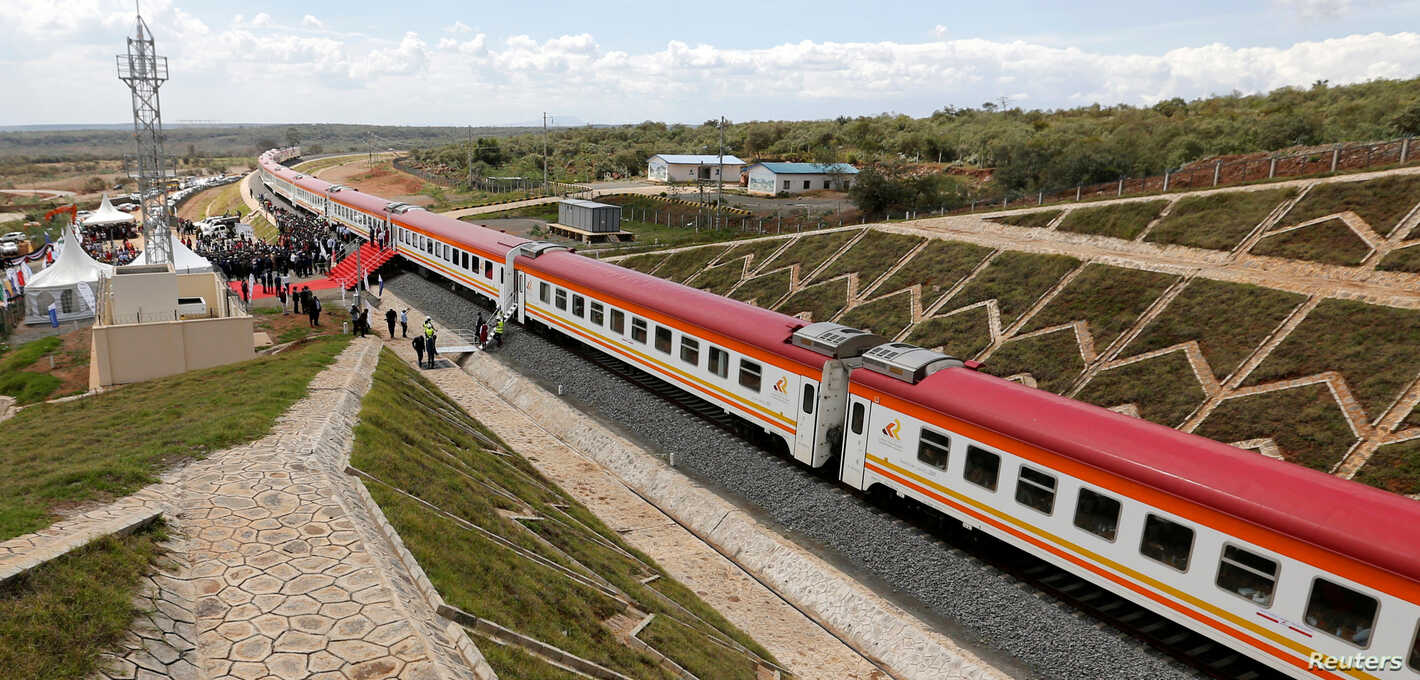
Nerves on edge in Africa as China reconsiders spending habits on the continent

China is Africa’s largest trading partner with over $200 billion in combined imports and exports annually. China has also financed billions of dollars of infrastructure projects like roads, ports and railroads across the continent.
But COVID-19 has taken a toll on the world economy, harming African countries’ ability to repay debt and decreasing China’s willingness to invest abroad. Observers are looking for signs as to how the China-Africa relationship will change in the wake of the virus.

“The Chinese economy is taking a heavy hit from COVID-19,” said Yun Sun, the director of the China program at the Stimson Center, a Washington-based policy research center. “That’s absolutely going to dampen the Chinese ability to disperse financing or continue to support infrastructure projects in developing countries including Africa, at a rate that did before.”
One of the biggest questions is the future of China’s numerous infrastructure projects including the massive Belt and Road Initiative. The Chinese government, banks and private investors lent about $146 billion to African countries between 2000 and 2017. Due to the global pandemic, many are calling for a pause in repayments or some form of debt forgiveness.
“It’s not just one African country who is so welcoming of this global gesture with this calling for global debt relief,” Sun said. “But I would say that the picture looks very different from the Chinese side. That, first of all, given the massive amount of debt that the African countries owe China, whether it is financially feasible for China to forgive those debts is a key question here.”
It is estimated that African countries owe a combined $44 billion to service debt this year. Global lenders including the International Monetary Fund, World Bank and private lenders from G-20 countries, including China, have agreed to pause debt service payments from 77 of the world’s poorest countries.
China has said it is open to further debt relief but prefers to negotiate terms on a one-on-one basis with individual countries.
“The Chinese attitude towards that, to begin with, is quite resistant,” Sun said. “It doesn’t mean that China will not engage in, for example, debt renegotiation or debt restructuring or even postponement to owe for a longer grace period for the African countries to pay back their debt. But I think a blanket debt forgiveness is not in the cards.”
African countries do not appear eager to be confrontational with China over debt.
Hannah Ryder runs Development Reimagined, a Beijing-based development consultancy. She said many African leaders believe taking on debt is essential to building the national infrastructure necessary to jump-start economies and lift citizens out of poverty.
She points out that African nations require a total of $68 billion per year to meet domestic infrastructure needs. They cannot finance those needs internally and must look to international lenders including many in China.
“Of course, there are problems with debt and debt is never fun even as an individual. It’s never great to have debt,” Ryder said. “But the reason why African leaders have decided to go into debt to fund different infrastructure projects, to fund energy, roads, etc. is because those are badly needed on the continent. And fundamentally, the African continent will not meet the Sustainable Development Goals, if those investments are not made.”

But concerns remain as to how China will react to an inability by African countries to repay loans. Djibouti, for example, owes foreign lenders an amount equal to about 80 percent of its gross domestic product. In Kenya, that figure is 61 percent. Both countries have major ports financed by China. Observers worry that as debt mounts, projects will go unfinished, or Chinese lenders will take control of African infrastructure in lieu of repayment.
“There are going to be some infrastructure projects that will go bust, that won’t be working as a result of COVID-19,” Ryder said. “And those issues need to be looked at in a much more, kind of, detailed structural way. And so that is going to be something that the governments need to think about going forward and they need to be starting to plan with and to talk to China about.”
Source: VOA
The post Nerves on edge in Africa as China reconsiders spending habits on the continent appeared first on Nile Post.
0 Response to "Nerves on edge in Africa as China reconsiders spending habits on the continent"
Post a Comment